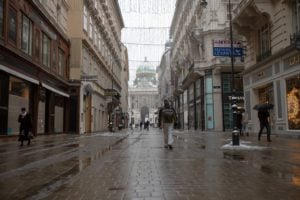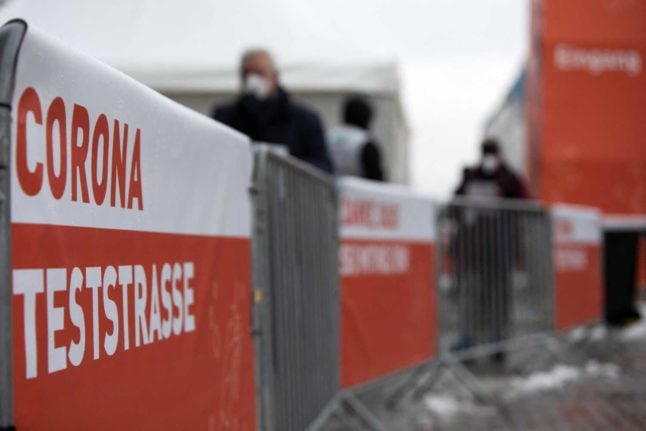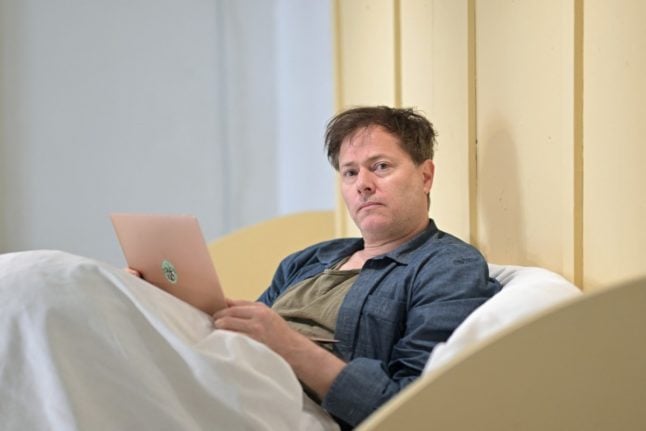Since the lockdown in Austria’s eastern states began on 1st April, the curve of infections has reduced far less steeply in Vienna than the other eastern states of Lower Austria and Burgenland, which introduced curfews and closed retail and schools at the same time.
Despite extra steps, such as introducing an outdoor mask requirement in some areas, the number of cases in Vienna fell by just eight percent in the first two weeks of lockdown.
In contrast, cases fell by 15 per cent in Lower Austria and 24 percent in Burgenland, according to Der Standard newspaper.
In Vienna the seven day incidence, or number of infections per 100,000 people remains at 216, while in Lower Austria and Burgenland the rate is dramatically lower. Burgenland has the lowest seven-day incidence in Austria, just 112, and Lower Austria’s is the second lowest at 140.6. The average across Austria is 185.
There are a number of theories surrounding the slower fall in cases.
PCR tests: Greater reliability of testing in Vienna
According to Der Standard newspaper 60,000 of the 78,000 tests were carried out on Wednesday according to the PCR method, in Lower Austria it was 8,000 out of 60,000, in Burgenland 600 out of 13,000 tests.
Vienna has introduced free “gurgle” PCR tests for its citizens, which are more accurate than antigen tests, which may increase the numbers of people testing positive.
READ MORE: Vienna to roll out free “gurgle tests” next week

Bad weather
Researcher Peter Klimek from the Complexity Science Hub (CSH) says there are “unknowns” in the infection process and bad weather in Vienna over the past few weeks may have played a role.
Language barriers and crowded housing?
Klimek also believes Vienna is home to more people who do not speak German, or have not achieved a high level of education, which, along with crowded housing or low incomes, could make it harder for Viennese citizens to keep to the pandemic measures.
‘Migrants more often affected by Corona’
Migration researcher Judith Kohlenberger cited OECD studies in an interview with APA which showed migrants were more often affected by Corona. She said in countries for which data are available, migrants have an approximately twice as high risk of infection. This could be associated with housing situations and income, but also language barriers.
Intensive care units still too full
The situation in intensive care units across the eastern states remains troubling. In Burgenland 39 percent of intensive care beds are occupied by coronavirus suffers, in Lower Austria it is 36 percent, and in Vienna 43 percent, according to the AGES database.
A spokesman told Der Standard newspaper that there were 209 people in intensive care units in Vienna on Wednesday, and commented the numbers were still “clearly too high,”.
However, migrants are not “filling up” intensive care wards, as claimed by FPO politician Gottfried Waldhäusl on Facebook.
Mehr als 50 Prozent der Covid-19-Intensivbetten sind aktuell mit Migranten belegt. Das sagen Gesundheitsexperten und…
Posted by Gottfried Waldhäusl on Monday, April 12, 2021
A fact check by Vienna AT found according to Gesundheit Österreich GmbH (GÖG) data, foreigners are even less likely to be in intensive care units because of Corona than Austrian citizens.
Foreigners made up 11.7 percent of the people in intensive care, but 17.1 percent of the total population.
And on a cheery note, Researcher Klimek told OE24 on Wednesday there is a “good chance” this will be the last lockdown.



 Please whitelist us to continue reading.
Please whitelist us to continue reading.
Member comments